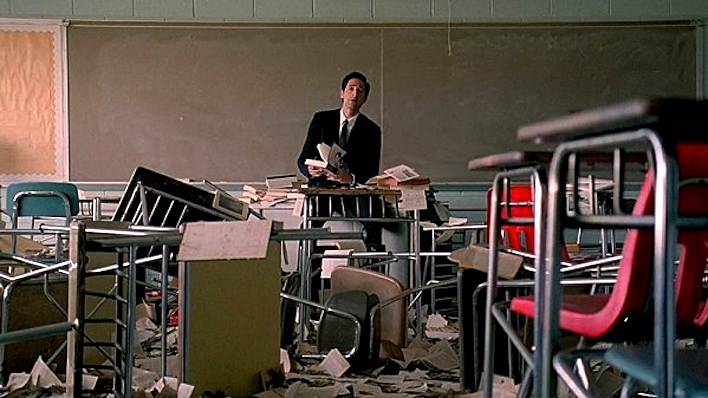Bene docere. Problemi (e soluzioni) di didattica della letteratura russa a livello universitario
Abstract
Vladimir Vladimirovič Nabokov fu indubbiamente uno degli attori principali nello scacchiere letterario internazionale; oltre alla figura di Nabokov scrittore non si deve però dimenticare quella di Nabokov professore. Questo aspetto, spesso marginalizzato dalla critica nabokoviana, merita uno sguardo più approfondito, poiché potrebbe stimolare una serie di interessanti riflessioni teoriche sull’insegnamento delle letterature, e in particolar modo quella russa. Nel presente contributo si farà riferimento soprattutto alla raccolta Lectures on Russian Literature (1981), risultato di un’operazione di collazione condotto da Fredson Bowers sugli appunti originali di Nabokov, che, come ebbe ad affermare in un’intervista, «fortunately took the trouble of writing one hundred lectures—about 2,000 pages — on Russian literature. [...] This kept me happy at Wellesley and Cornell for twenty academic years» (Strong Opinions, 1973: 5).
Downloads
Riferimenti bibliografici
Aref’ev, Aleksandr L., Russkij jazyk na rubeže XX-XXI vekov, Moskva, Centr social’nogo prognozirovanija i marketinga, 2012.
Balbert, Peter, “Perceptions of Exile: Nabokov, Bellow, and the Province of Art”, Studies in the Novel, 14.1 (1982): 95104.
Bauer, Franck, “Les Métamorphoses d’une phrase (à propos d’une phrase de La Métamorphose”, Roman 2050: Revue d’Etude du Roman du XXe Siècle, 38 (2004): 12533.
Biasin, Rita, Maria Francia, “Pnin: un intellettuale russo in America”, Il Lettore di Provincia, 21.75 (1989): 61-73.
Bowers, Fredson, “Introduction”, Lectures on Russian Literature, ed. Fredson Bowers, San Diego, Harvest Book/Harcourt, 1981: 5-10.
Boyd, Brian, Vladimir Nabokov. The American Years, Princeton, Princeton University Press, 1991.
Bronski, Michael, “Nabokowa lekcja literatury”, Kultura: Szkice, Opowiadania, Sprawozdania, 10.445 (1984): 8396.
Caselli, Gian Paolo, La Russia nuova. Economia e storia da Gorbačëv a Putin, Milano, Mimesis, 2013.
Cohen, Hazel, “Nabokov’s Pnin: A Character in Flight from His Author”, English Studies in Africa: A Journal of the Humanities, 26.1 (1983): 57-71.
Danta, Chris, “Two Versions of Death: the Transformation of the Literary Corpse in Kafka and Stevenson”, Textual Practice, 20.2 (2006): 28199.
Diment, Galya, “Timofey Pnin, Vladimir Nabokov, and Marc Szeftel”, Nabokov Studies, 3 (1996): 53-75.
Dorit, Abusch, “HaSifrut haRussit beEinei Nabokov”, Iton 77, 42 (1983): 389.
EDiplomat.com, “Helpful Hints”, http://www.ediplomat.com/np/cultural_etiquette/ce_ru.htm, online (ultimo accesso 30/11/2013).
Filatov, Igor’ E., “Avtor i geroj v estetike V. V. Nabokova: Lekcii po russkoj literature”, Problemy literaturnych žanrov, čast' II, ed. Faina Z. Kanunova, Aleksandr S. Januškevič, Tomsk, Izdatel’stvo Tomskogo universiteta, 1999: 18184.
Jefford, Andrew, “Dr. Jekyll and Professor Nabokov: Reading a Reading”, Robert Louis Stevenson, Ed. Andrew Noble, LondonTotowa, VisionBarnes & Noble, 1983: 4772.
Karlinsky, Simon, “Nabokov’s Lectures on Russian Literature”, Partisan Review, 50.1 (1983): 94100.
Khatib, Mohammad, Rahimi, Amir Hossein, “Literature and Language Teaching”, Journal of Academic and Applied Studies, 2.6 (2012): 32-8.
Knapp, Shoshana, “Nabokov and Mirsky”, The Nabokovian, 13 (1984): 356.
Kulikova, Aleksandra, “Perché studiare russo? Intervista a Dmitri Petrov”, Russia Oggi, 25/09/2013. http://russiaoggi.it/cultura/2013/09/25/perche_studiare_russo_26709.html, online (ultimo accesso 30/11/2013).
Ladenson, Elisabeth, “Approaching the Unapproachable: a Proustian Preface”, French Forum, 30.1 (2005): 97105.
Lewis, Paul M. (ed.), Ethnologue: Languages of the World (16th edition), Dallas (Texas), SIL International, 2009. http://archive.ethnologue.com/16/show_language.asp?code=rus, online (ultimo accesso 30/11/2013).
Ljuboslov, Ezykin, Russkij jazyk v mire: sovremennoe sostojanie i tendencii rasprostranenija, Moskva, Centr social’nogo prognozirovanija, 2005.
Nabokov, Vladimir V., Strong Opinions, New York, McGraw-Hill, 1973.
— “Russian Writers, Censors, and Readers”, Lectures on Russian Literature, Ed. Fredson Bowers, San Diego, Harvest Book/Harcourt, 1981: 12-8.
— Lectures on Russian Literature, Ed. Fredson Bowers, San Diego, Harvest Book/Harcourt, 1981.
— “Problems of Translation: Onegin in English”, The Translation Studies Reader, ed. Laurence Venuti, London and New York, Routledge, 2000: 71-83.
— Pnin, New York, Everyman’s Library, 2004.
Nicol, Charles, “Pnin’s History”, Novel: A Forum on Fiction, 4.3 (1971): 197-208.
Notkin, Gerbert, “V kontakte s Nabokovym: ‘Prevraščenie’ Franca Kafki”, Zvezda, 5 (2011): 20618.
Parker, Stephen Jan, “Professor Nabokov: A Review Essay”, The Vladimir Nabokov Research Newsletter, 8 (1982): 38-45.
Patapenko, S. N., “‘Samaja velikaja p’esa, napisannaja v Rossii ...’: ‘Revizor’ N. V. Gogolja v pročtenie Vl. Nabokova”, N. V. Gogol’ i ego tvorčeskoe nasledie, Ed. Vera P. Vikulova, Moskva, Festpartner, 2010: 22733.
Pellérdi, Márta, “Nabokov’s Russian Professor: Pnin”, Studia Russica, 14-15 (1990): 416-30.
Poulin, Isabelle, “Enseigner (avec) Nabokov”, Nabokov Online Journal, 2 (2008): 1-22 (nessuna paginazione).
Shapiro, Gavriel, “Cornell References in Pnin”, Nabokovian, 41 (1998): 31-4.
— “Setting his myriad faces in his text: Nabokov’s authorial presence revisited”, Nabokov and His Fiction: New Perspectives, ed. Julian W. Connolly, Cambridge, Cambridge University Press, 1999: 15-35.
Švagrukova, Ekaterina V., “Tvorčestvo A. P. Čechova v ‘Lekcijach po russkoj literature’ V. V. Nabokova”, Čechov i vremja, ed. Elena G. Novikova, Tomsk, Izdatel’stvo Tomskogo universiteta, 2011: 21426.
Swiss Business Hub Russia, Russian Business Etiquette, http://www.s-ge.com/de/filefield-private/files/25660/field_blog_public_files/5230, online (ultimo accesso 30/11/2013).
Valdes, Joyce M., Culture Bound: Bridging the Cultural Gap in Language Teaching, Cambridge, Cambridge University Press, 1986.
Walters, Tim, “’Nabokov’ as Both String and Hole in the Postmodern Net of Flaubert’s Parrot”, Q/W/E/R/T/Y: Arts, Littératures & Civilisations du Monde Anglophone, 11 (2001): 197203.
Zavyalov-Leving, Yuri, “Samuel Izrailevich: Pnin’s Character, Nabokov’s Friend”, Nabokovian, 39 (1997): 13-7.
Informazioni sul copyright
Questa licenza permette a terzi di riprodurre, distribuire, comunicare al pubblico, esporre in pubblico, rappresentare, eseguire, recitare e modificare quest'opera, purché vengano citati l'autore e la rivista. Questa è la più ampia tra le licenze Creative Commons, rispetto alle libertà concesse a terzi sulle opere licenziate sotto Attribuzione.









